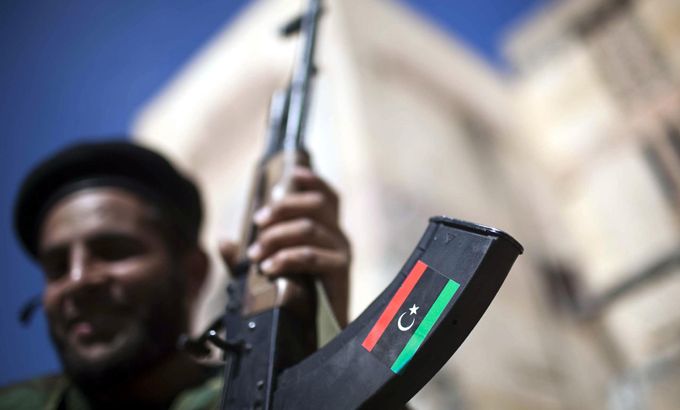
The hunt for the remnants of Gaddafi’s regime
The NTC is pressing countries to hand over leading figures from Gaddafi’s government, but rights groups point to abuses.
Libyans are celebrating the first anniversary of their uprising against Muammar Gaddafi. In less than a year they were able to first topple and then kill Gaddafi – all with the help of NATO forces.
But many challenges still remain for the country. One of which is tracking down remnants of the old regime.
The Libyan National Transitional Council (NTC) is pressing countries to hand over leading figures from Gaddafi’s government. It says they were involved in crimes and should be returned to the country to face trial. But rights groups say that some of those currently being held in makeshift prisons are being mistreated.
|
“Many of us who followed Libya in the past 20 years or so expected that any post-dictatorship scenario will require a lot of work to rebuild state institutions, to rebuild trust between people and the government and to bring about a rule of law and the cohesion of a nation in a way Gaddafi had so dismantled and destroyed systematically over 42 years.“ – Tarik Yousef, a senior fellow at the Brookings Institute |
Around 15 of Gaddafi’s top officials are still at large and being hunted. They were all highly influential.
Mustapha al-Shugar, Libya’s deputy prime minister, says: “They are outlaws and as long as they are free to move they are trying to disturb the peace of this country and the peace of the world.”
But human rights organisations have produced evidence of abuse, torture and killing in post-revolution Libya – the kind of treatment the revolution was intent on ending. Evidence, perhaps, that the scars of Libya’s bitter war may not heal as quickly or completely as some may hope.
And as the NTC comes closer to finalising plans for the upcoming elections in June, bringing democracy to the country still faces numerous challenges.
Chief among these is ensuring that the vote is free and fair and that Libya’s various tribal groups are all integrated into the new parliament. Disarming rebels is also essential, as is bringing various militias under the umbrella of the ministry of defence. Making sure that the nation’s oil wealth and frozen assets are fairly distributed is also important.
And, in addition to all of this, the NTC will have to build legitimate and trusted institutions, while also proving its own legitimacy to the Libyan people.
So is Libya better after Gaddafi? And what are the benchmarks against which the NTC’s performance can be measured?
Joining Inside Story to discuss this are: Donatella Rovera, a senior advisor with Amnesty International; Richard Barltrop, a Libyan politics analyst; and Tarik Yousef, a senior fellow at the Brookings Institute.
| “There are several hundred militias operating throughout the country without any sort of rule of law … and they do commit widespread abuses, notably the issue of torture which is quite routine in the detention centres ….
We [Amnesty International] also looked at other abuses committed by militias, notably the forcible displacement of populations, revenge attacks against individuals, against families in some cases, against entire communities who are chased out of their homes and their homes are burned down to prevent them ever returning …. Regrettably what we have found is that no investigations have been initiated into any of the abuses committed by the militias, including very serious abuses that amount to war crimes.” Donatella Rovera, a senior advisor with Amnesty International |